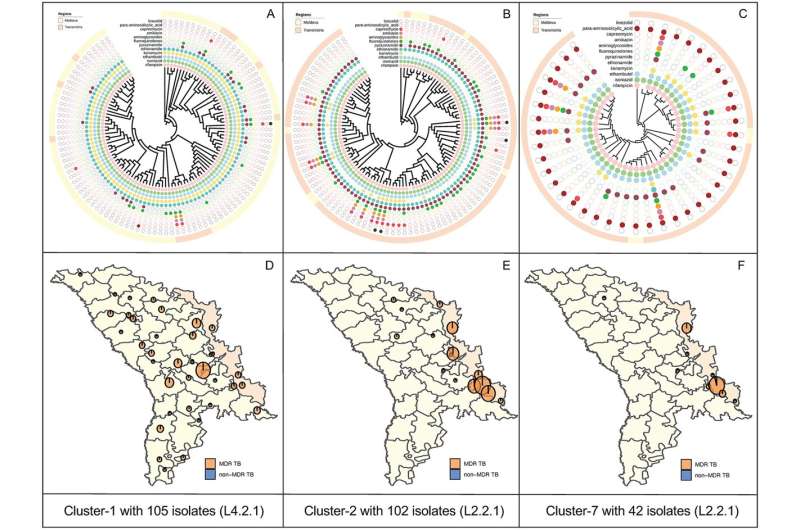Study identifies drug-resistant tuberculosis strains spreading in Moldova

Public health experts are getting a better picture of drug-resistant tuberculosis in Moldova, thanks to the efforts of a coalition of researchers from across the world led by scientists at the Yale School of Public Health.
In a recent study published in PLOS Medicine, the team of scientists used new genome surveillance techniques to uncover key details about the spread of tuberculosis within the Eastern European country.
According to YSPH Professor of Epidemiology Dr. Ted Cohen, D.P.H., M.D., M.P.H., the study's senior author, the findings could help save lives and control further spread of the disease, which has reached epidemic proportions in some areas.
"A lot of the details about where multi-drug resistant TB was being transmitted, which variants of multi-drug resistant TB were most likely being transmitted and the cause of this problem, were not understood," Cohen said. "This study was really our attempt to use the most modern tools to get a high-resolution picture of transmission of TB and drug-resistant TB in the country."
Moldova, like other countries which were formerly part of the Soviet Union, currently struggles with containing a tuberculosis epidemic for which a large fraction of cases are resistant to rifampin and isoniazid, two of the primary drugs used to treat the respiratory disease.
Identifying the locations of specific strains of the bacteria that cause the disease helps local officials monitor the epidemic and better understand which drugs still work for treatment. But identifying and tracking dominant strains in a region can be difficult and costly, Cohen said.
By combining new approaches in genetic analysis with innovative statistical methods, the study was able to capture the spread of both drug-susceptible tuberculosis and all of the drug-resistant strains in the entire country—a study approach that offered unprecedented insights, Cohen said.
Their analysis of more than 2,000 tuberculosis samples from 2018 and 2019 revealed that three distinct genomic clades of drug-resistant tuberculosis had dominated in the country: two from a Beijing lineage and one from a Ural lineage. Interestingly, they found, that the clusters of the Beijing lineage were predominantly located in the eastern Transnistrian region, a breakaway area claimed by Russian-backed separatists, whereas the Ural lineage cluster had spread throughout the entire country. Cohen said that this finding could reflect the differences in local populations' behavior and potential obstacles to free population movement between Transnistria and the rest of Moldova.
The current conflict in Ukraine may make more concerted efforts to assist Moldova difficult, he said.
"We know that infectious diseases are another casualty of war," he said. "And I would expect disruptions in treatment and the large-scale movement of individuals to cause even worse outcomes for our patients."
Nevertheless, Cohen hopes that with the new data, health officials and public health researchers in Moldova will be better equipped to develop new interventions to help stop the spread of tuberculosis.
More information: Chongguang Yang et al, Phylogeography and transmission of M. tuberculosis in Moldova: A prospective genomic analysis, PLOS Medicine (2022). DOI: 10.1371/journal.pmed.1003933




















